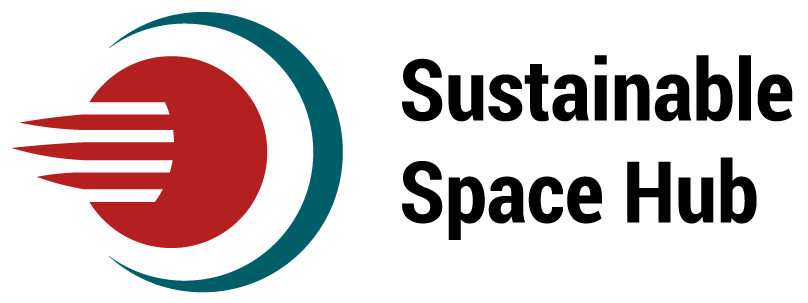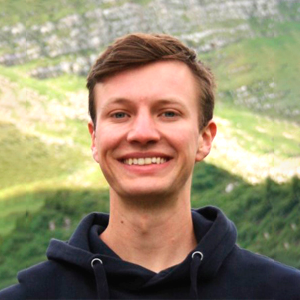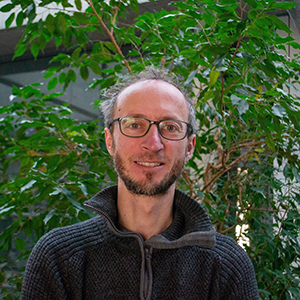
- This event has passed.
Sustainable Space Hub: new technologies and services to secure the long-term usability of space
13 March 2023 @ 16:30 - 17:30

eSpace - EPFL Space Center is a pioneer in space sustainability. With the Clean Space Initiative, initially proposed to deorbit Swisscube which eventually spin-off from EPFL as the ClearSpace-1 mission to recover the Vega Secondary Payload Adapter (VESPA), the Center can draw on a decade of experience in space sustainability. More recently, in 2019 eSpace initiated a two-year pilot phase of a research initiative on sustainable space logistics (RISSL). This initiative was the starting point of several consortium projects that attracted many stakeholders, resulting in several publications and the development of a space logistics modelling software for mission profile evaluation and optimization [1]. The success of this pilot phase encouraged the Center to continue exploring this new domain. Current research includes life cycle assessment of space transportation vehicles, accounting for space debris risks and the reentry phase, optimisation of space logistics, and mission design. These projects will help understanding and improving the situation in space. It is especially important to assess future impacts of new missions early in the design phase, in order to support space agencies and industry in designing new concepts with lower environmental impacts.
Thanks to these 10+ years of experience, in 2021 EPFL was selected to host the Space Sustainability Rating (SSR), which incentivizes space operators to adopt more responsible mission design and operational behaviour. Its competence and neutrality, two important prerequisites for a successful, fair and widely accepted evaluation system, make eSpace the ideal host institution for the rating. The definition of sustainability in space is constantly evolving. eSpace is therefore continuously improving the formulation of the SSR to address emerging environmental, societal, and economic factors in the assessment.
These efforts are complemented by the EPFL laboratory of astrophysics (LASTRO), which is currently working on detection and characterization of resident objects in Earth’s orbit in large astronomical data archives [2]. The information extracted from these archives will allow a better evaluation of the evolution and current state of the small debris population, and support active debris removal that will be necessary to secure the future use of Earth's orbit.
In order to unite EPFL’s forces in the domain of sustainability in space, eSpace has recently launched the Sustainable Space Hub (SSH). The goal of the Hub is to coherently manage and foster the growth of these topics. 5 institutes within EPFL are currently involved in research and development projects in the field of space sustainability. The hub is connecting these individual projects in a workflow that rests on three intertwined pillars: measure, understand, and act for space sustainability.
The projects associated with each pillar are essential to find solutions to the problems arising from the rapidly increasing space activities, the risk from space debris, and the generated atmospheric impacts. The Hub will help identify and promote new technologies in space sustainability with new services in orbit and on the ground.
Mathieu Udriot
Research Scientist & Systems Engineer at eSpace

Young professional at the EPFL Space Center (Lausanne, Switzerland), Mathieu is involved in projects related to space logistics, space sustainability, concurrent engineering, and he supervises student teams at EPFL. In particular, Mathieu is working on two projects, funded by ESA, that are looking at the environmental impacts of launchers using a life cycle assessment methodology, and modelling space logistics scenarios to understand the feasibility of future missions.
Mathieu graduated at EPFL in February 2022 with a master in microengineering, specialized in space technologies. His master thesis was about the Implementation of a Space Sustainability Rating. He is still supporting this association on some R&D projects. He was also part of the EPFL team that won the European Rocketry Challenge 2021 in Portugal.
Stephan Hellmich
Post doc research scientist at LASTRO

After studying computer science, which he completed in 2010 with a collaborative diploma thesis from HTWK Leipzig and UNI Leipzig in the field of bioinformatics, Stephan began his scientific career studying small planets in the solar system at the DLR Institute for Planetary Science in Berlin. During his PhD thesis, Stephan investigated the long-term orbital evolution of Jupiter Trojan asteroids under the influence of the non-gravitational Yarkovsky force. Besides this activity, Stephan was involved in several projects of the DLR institute and the ESA SSA initiative.
He supported the hardware and software development for the extension of the 1.23m telescope at the German-Spanish observatory on Calar Alto and conducted observations of exoplanets, asteroids and comets to determine their rotational and physical properties. While the focus of the observations was on Jupiter Trojan asteroids in support of the recently launched LUCY mission, Stephan also led a program of secondary use of the observational data that resulted in the reporting of hundreds of thousands of astrometric positions to the Minor Planet Center and the discovery of several asteroids and a trans Neptunian object.
In early 2022, Stephan started supporting EPFL's SSA activities as a postdoctoral researcher. He is mainly working on extracting information on space debris from large astronomical data archives and enabling the TELESTO telescope at the Observatory of Geneva for space debris observations.